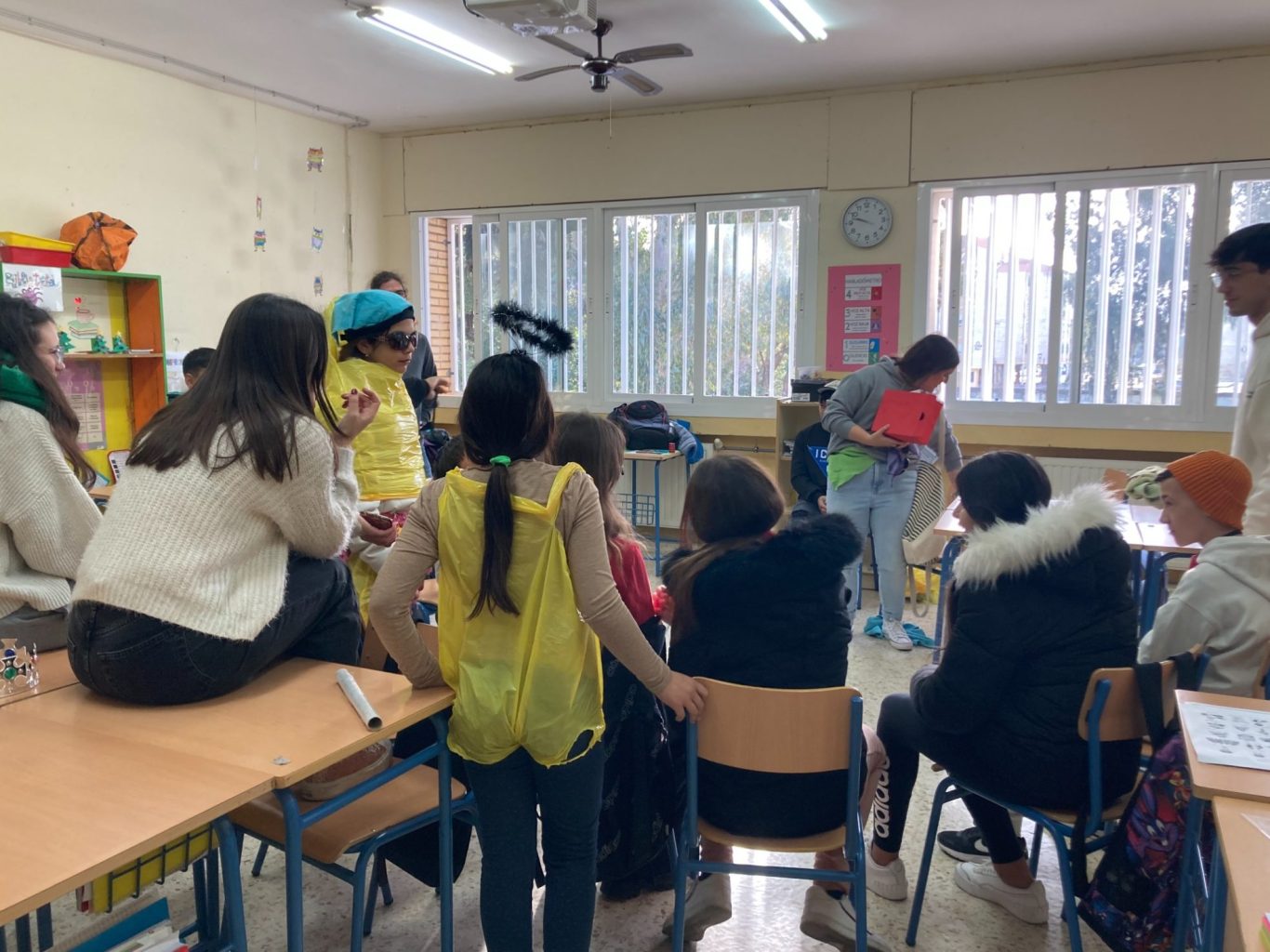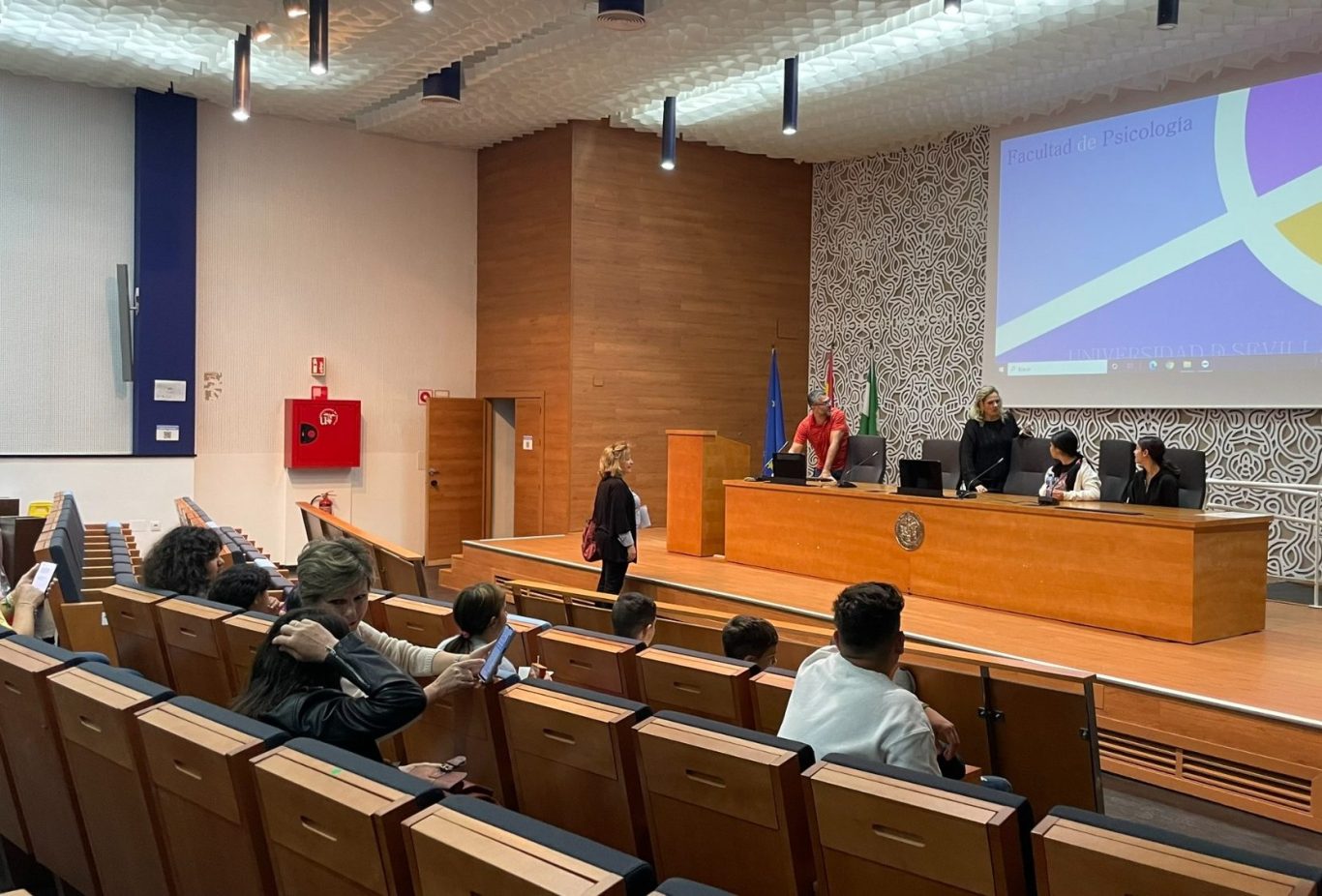Services provided by the association
The services provided by Pensando en el Futuro are divided into two main areas: a training program and a psychosocial intervention project.
Intervention with minors at risk of social exclusion
This psychosocial intervention project, now in its sixth edition, focuses on improving the quality of life and future prospects of adolescents at risk of psychosocial issues. Its main objective is to foster socio-emotional development and reduce absenteeism or school dropout among primary and secondary school students in various educational centers located in Polígono Sur, a neighborhood in Seville with a high risk of social exclusion, through a school mentoring program with university students.
The program provides resources and skills to children living in disadvantaged contexts, aiming to enhance their socio-emotional development and broaden their personal, professional, and social horizons. The project's methodology combines group and individual interventions. In group sessions, instrumental and cognitive support is offered, addressing relevant topics to promote socio-emotional development. These topics are further explored in individual sessions, where mentors, university students majoring in Psychology, work personally and contextually with each participant.
The project has involved a significant number of children from up to ten schools in the neighborhood and has included the participation of numerous Psychology students as mentors. The results have been positive, with notable improvements in seeking help for personal problems, learning emotional regulation strategies, acquiring conflict resolution techniques, reflecting on future perspectives, and developing attitudes and values such as gender equity, commitment, responsibility, respect, solidarity, sensitivity, and critical thinking.

Training Program for Mentors of Adolescents in Vulnerable Situations
This training program seeks to comprehensively prepare participants by providing the necessary tools to effectively support at-risk adolescents. Learning objectives include understanding mentoring and adolescent development, applying communication and conflict resolution techniques, establishing trusting relationships, identifying and managing risk situations, promoting socio-personal skills, managing one's own stress, and fulfilling the ethical and legal responsibilities of the role.
The course content is organized into seven modules that address various key aspects: from the conceptualization of mentoring and the sociocultural context, to the characteristics of adolescence, prevention and management of difficult situations, personal and relational skills, self-care, and ethical and legal aspects. Each module combines theory and practice, including communication techniques, crisis intervention, and stress management, among others.
The teaching methodology includes theoretical and practical sessions, interactive workshops and continuous supervision. The course has a total duration of 35 hours distributed over seven weeks, with 2.5-hour sessions twice a week. Teaching materials include manuals, presentations, articles, and online resources. Evaluation is through participation, theoretical tests, supervised practice and a final project, with constant feedback from supervisors and tutors.

Necesitamos su consentimiento para cargar las traducciones
Utilizamos un servicio de terceros para traducir el contenido del sitio web que puede recopilar datos sobre su actividad. Por favor revise los detalles en la política de privacidad y acepte el servicio para ver las traducciones.

